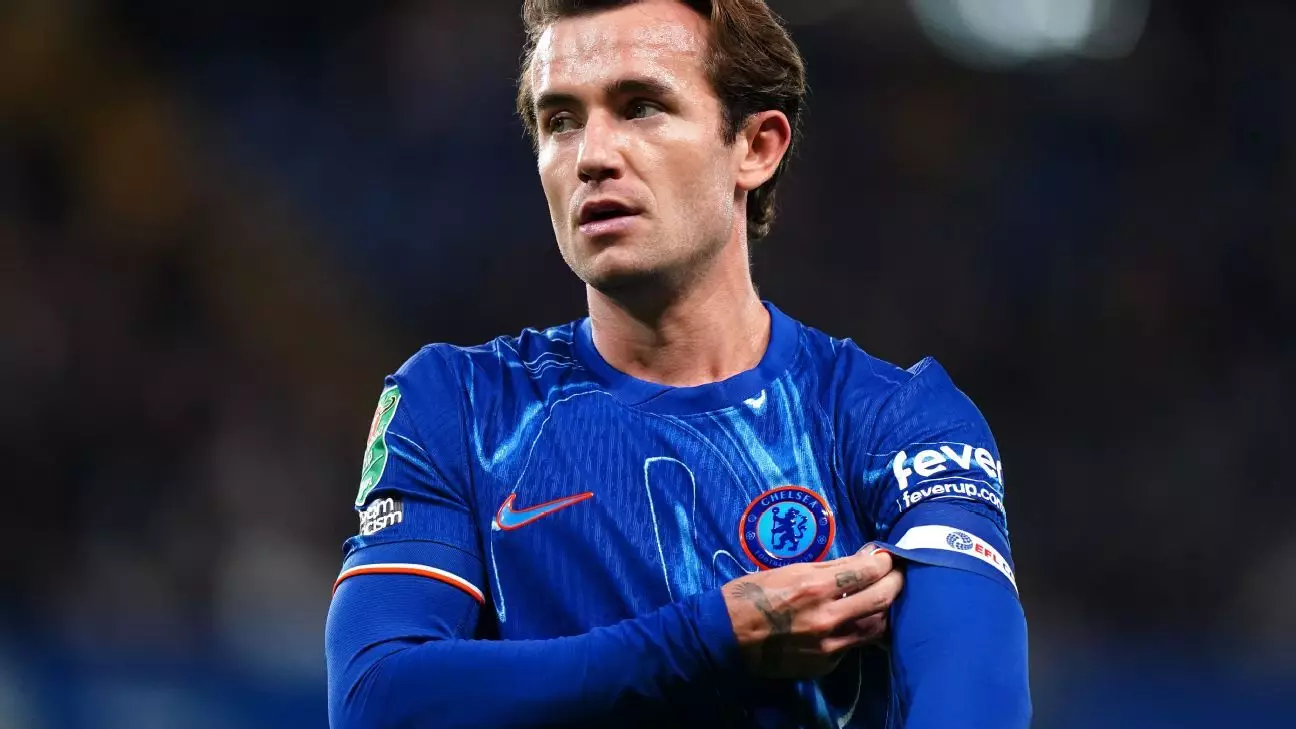The ongoing saga of Ben Chilwell at Chelsea has taken a peculiar turn under the management of Enzo Maresca. While the manager has expressed a palpable sense of “shame” regarding the treatment of the talented full-back, he remains resolute in stating that Chilwell’s style of play does not mesh with his current tactical vision for the club. This contradiction raises questions about both the player’s future and Maresca’s decision-making process as Chelsea grapples with its identity and performance in the Premier League.
Ben Chilwell, a player who has been a stalwart at Chelsea with over 70 Premier League appearances to his name, finds himself marginalized after Maresca’s arrival. Despite being a significant contributor in past seasons, Chilwell’s lack of game time this year marks a stark shift. Maresca’s comments indicate a deliberate choice to favor other players like Malo Gusto, Reece James, and Marc Cucurella, who he believes can perform specific roles that fit his strategy better. This decision raises concerns about the manager’s ability to optimize the squad’s potential while fostering player morale.
Maresca’s inclination to defend his choices hinges on the assertion that Chilwell’s skill set may not align with his expectations for modern full-backs—specifically, their ability to adapt to various game situations. The Argentine manager’s criticism of full-backs who do not possess versatility underscores a tactical rigidity that could backfire. While it’s commendable for a coach to have a clear vision, it risks alienating valuable assets like Chilwell, who, despite the tactical mismatch, could still provide crucial contributions if utilized effectively.
Adding another layer to this intricate situation is the potential exit of young defender Renato Veiga, whose reported dissatisfaction with his role at Chelsea mirrors Chilwell’s plight. Maresca’s acknowledgment of Veiga’s performance in various positions emphasizes the need for flexibility in player deployment—Inevitably, however, this raises deeper questions about the developmental strategy at Chelsea. The manager’s remarks suggest a reluctance to accommodate young talent in their preferred roles, potentially stifling their growth and prompting thoughts of transfer requests.
Chelsea is in a precarious position, currently winless in their last five Premier League matches, which places significant pressure on Maresca to reassess his strategies. Hosting Bournemouth on Tuesday, the implications of player choices like that of Chilwell could be the determining factor in not only individual careers but also the broader success of the club under Maresca’s leadership. Adapting to changes in player dynamics while still striving for tactical innovation could be the key to reinvigorating the team and perhaps redeeming both the manager and players whose talents are currently underutilized. The situation highlights the need for balance between a manager’s vision and a player’s intrinsic capabilities, suggesting that a more collaborative approach might ultimately serve Chelsea best.

